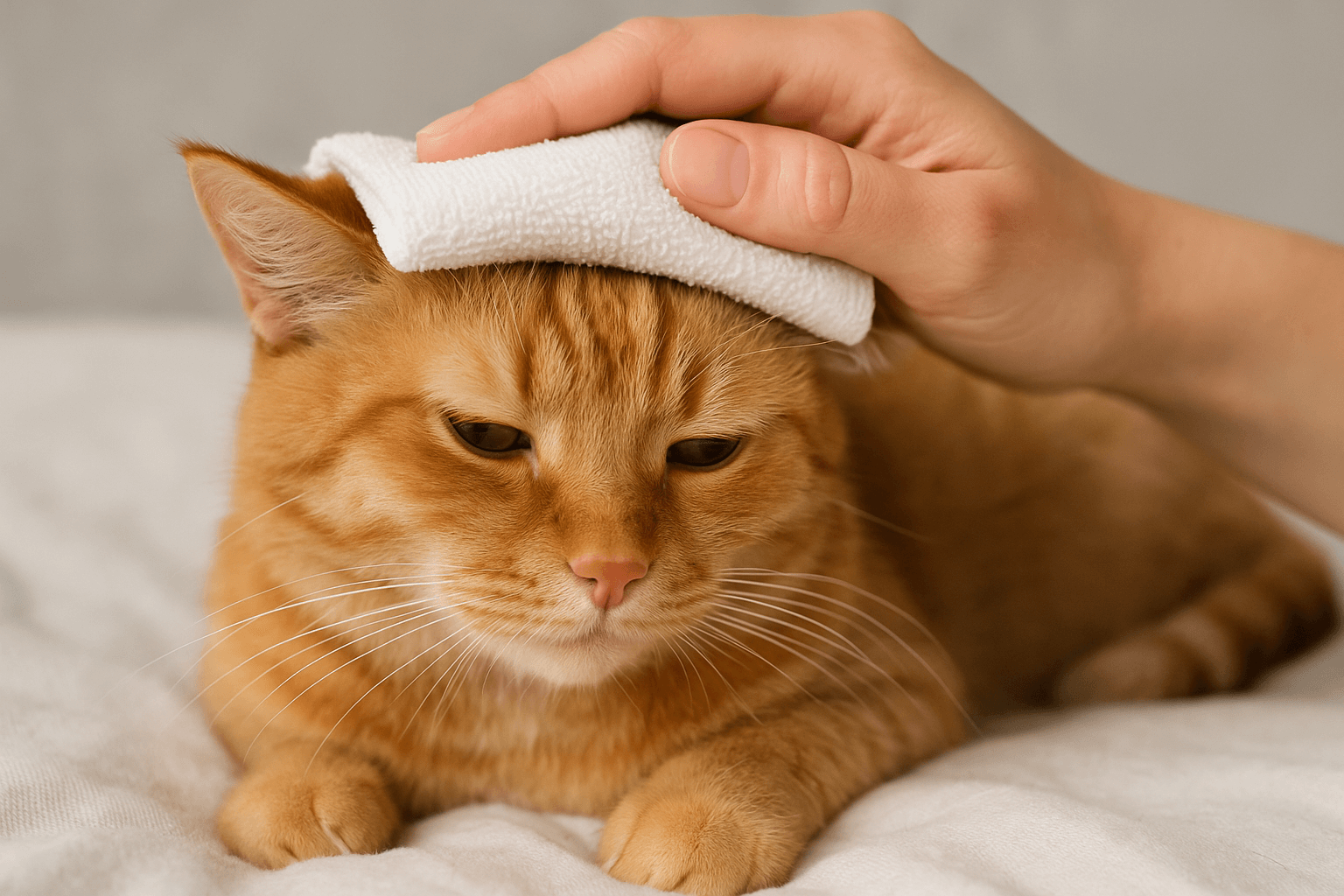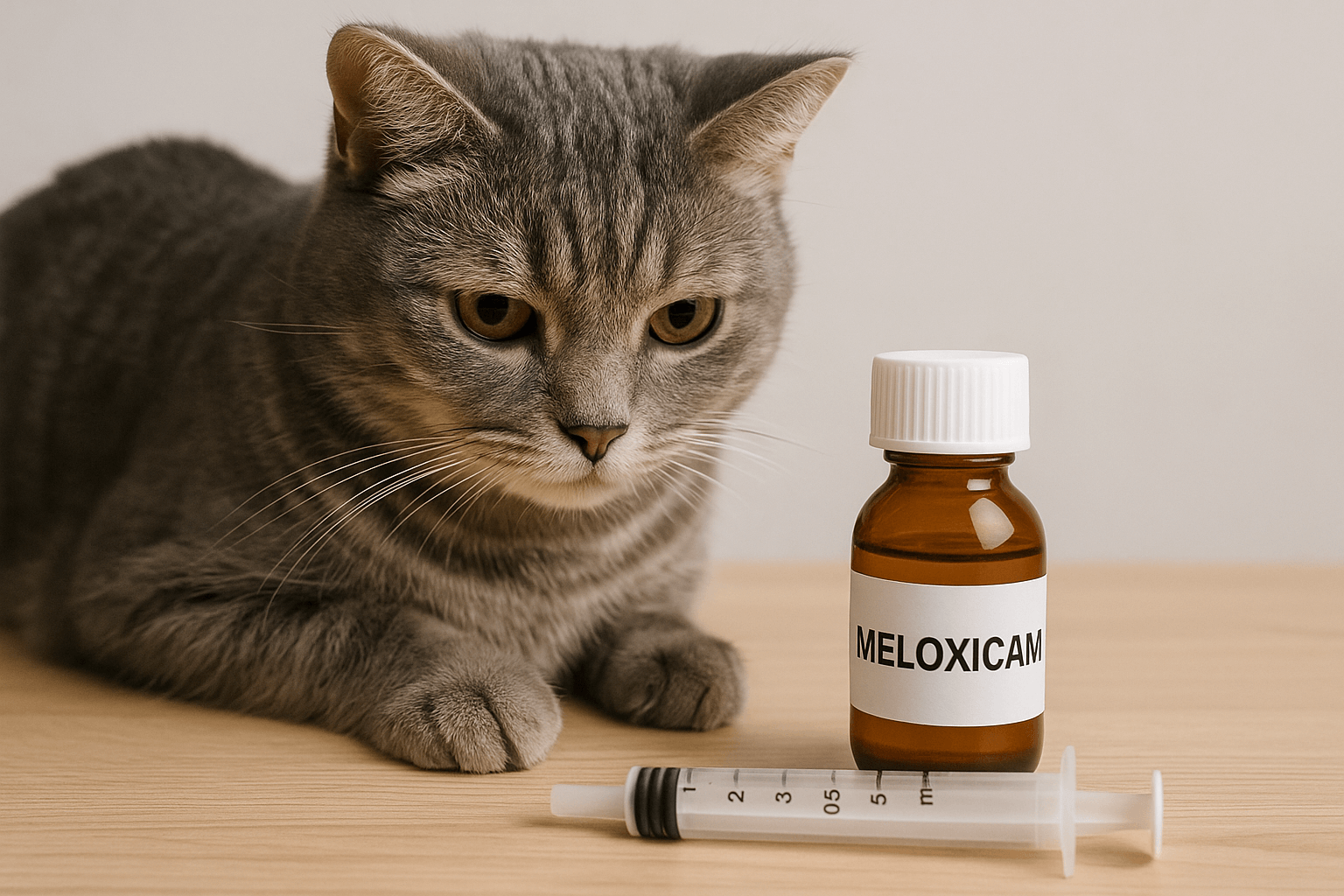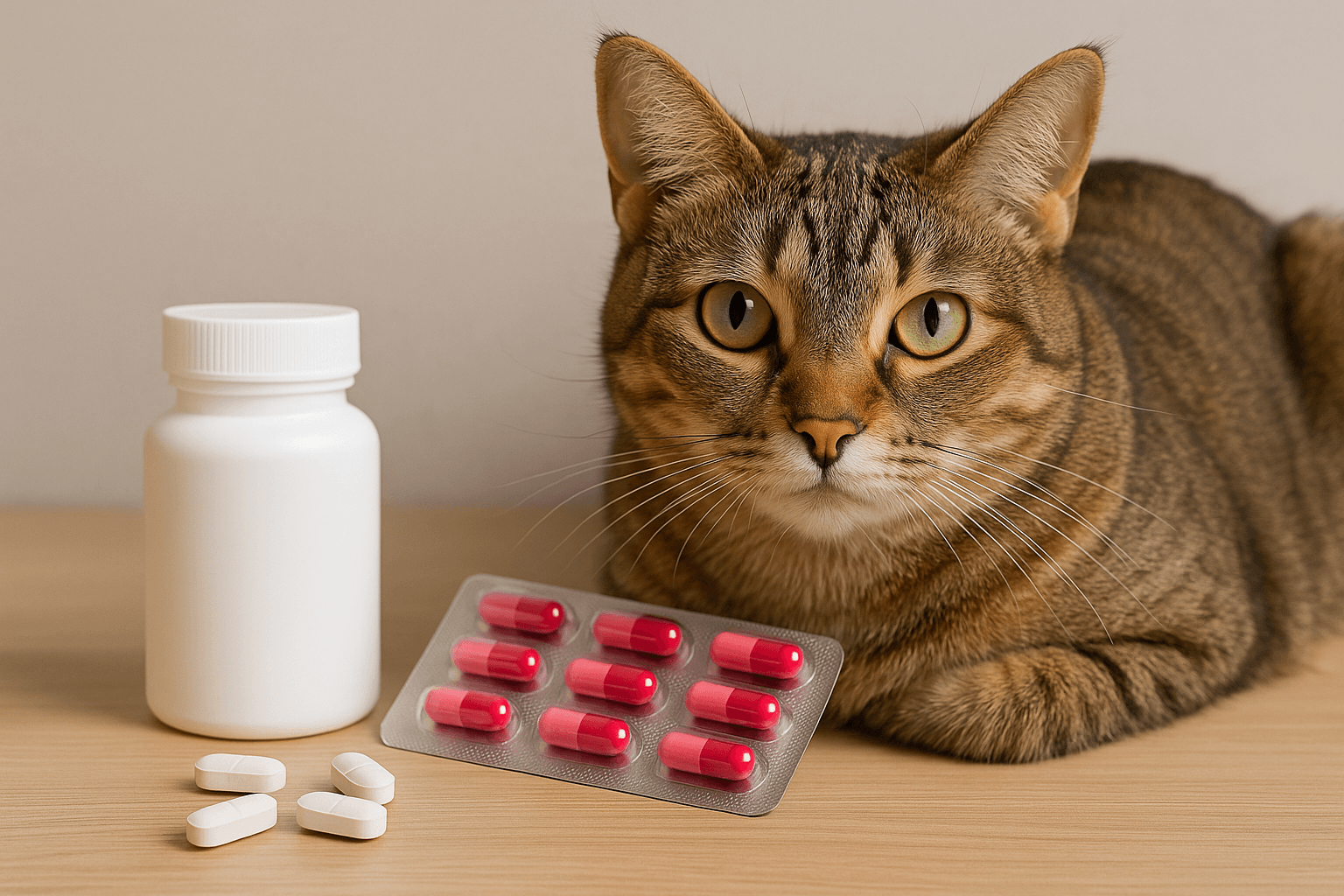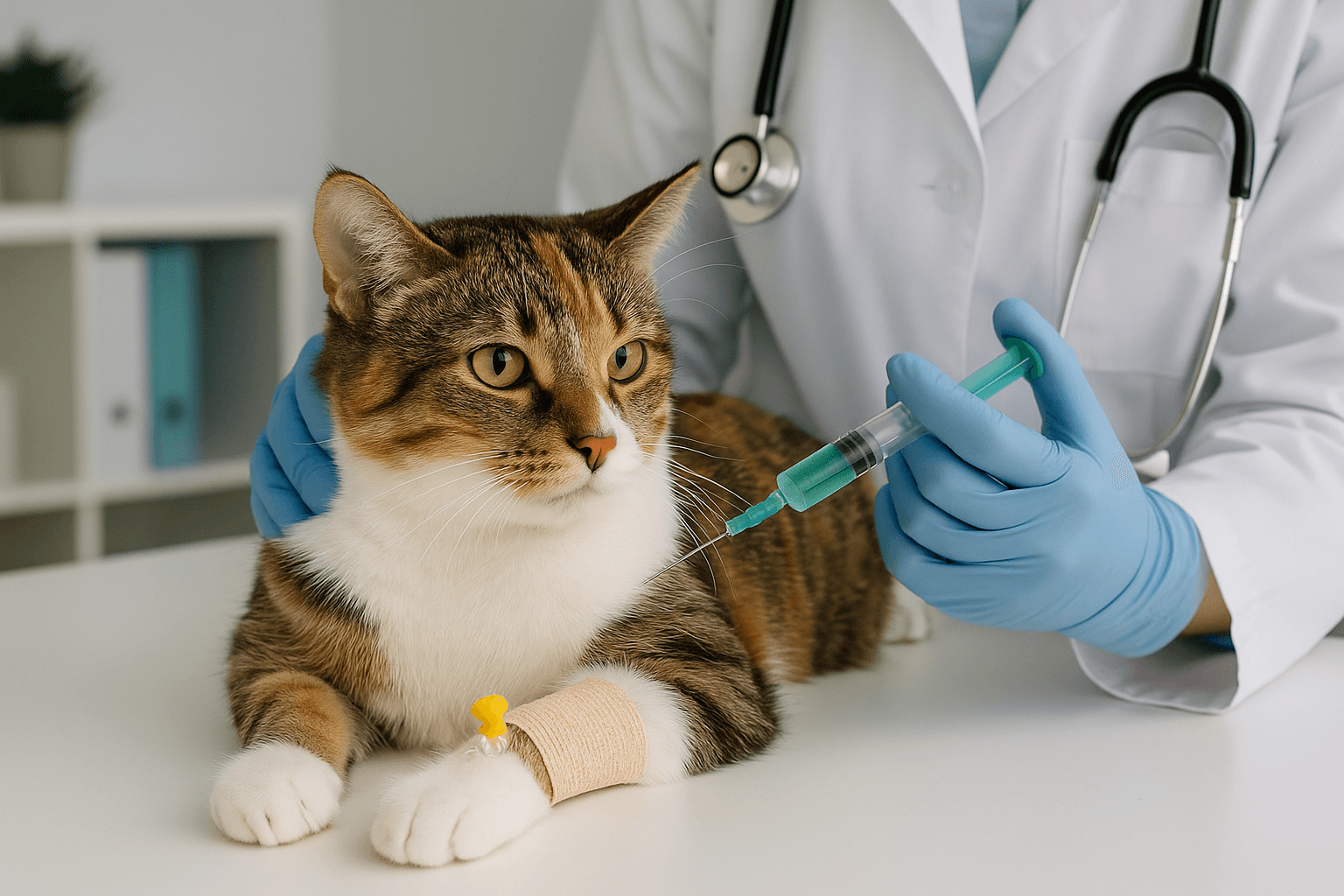Understanding Cat Separation Anxiety
Cats are often perceived as independent and self-sufficient creatures, but many develop strong bonds with their human companions. When left alone, some cats experience separation anxiety—a condition that can manifest in destructive behavior, vocalization, or changes in eating habits. While it’s less commonly discussed than dog separation anxiety, it’s equally important to address. Recognizing the signs of cat separation anxiety and understanding how to manage it can help your feline friend feel more secure and content, even when you’re not around. In this blog post, we’ll explore the causes, symptoms, and solutions for cat separation anxiety to ensure a happier home for both you and your furry companion.
Expert Insight on Cat Separation Anxiety
“Separation anxiety is an unwelcome condition that can be a result of excessive attachment. Research supports the fact that cats can develop separation anxiety syndrome, and they show many of the same signs that are seen in dogs.”
Signs Your Cat May Be Experiencing Separation Anxiety
Separation anxiety in cats can be subtle, and its symptoms may vary from one cat to another. Being aware of these signs is crucial for identifying whether your cat is struggling with being left alone.
Excessive Vocalization:
If your cat meows loudly or persistently after you leave, they may be expressing distress or seeking attention.Destructive Behavior:
Scratching furniture, knocking over objects, or chewing on items can indicate stress and anxiety.Changes in Eating Habits:
Some cats may refuse to eat or overeat when left alone, signaling emotional discomfort.Inappropriate Elimination:
Urinating or defecating outside the litter box may occur due to stress rather than medical issues.Overgrooming:
Cats may excessively lick or groom themselves as a coping mechanism, leading to bald patches or skin irritation.
By recognizing these behaviors early, you can take steps to alleviate your cat’s anxiety and improve their well-being.
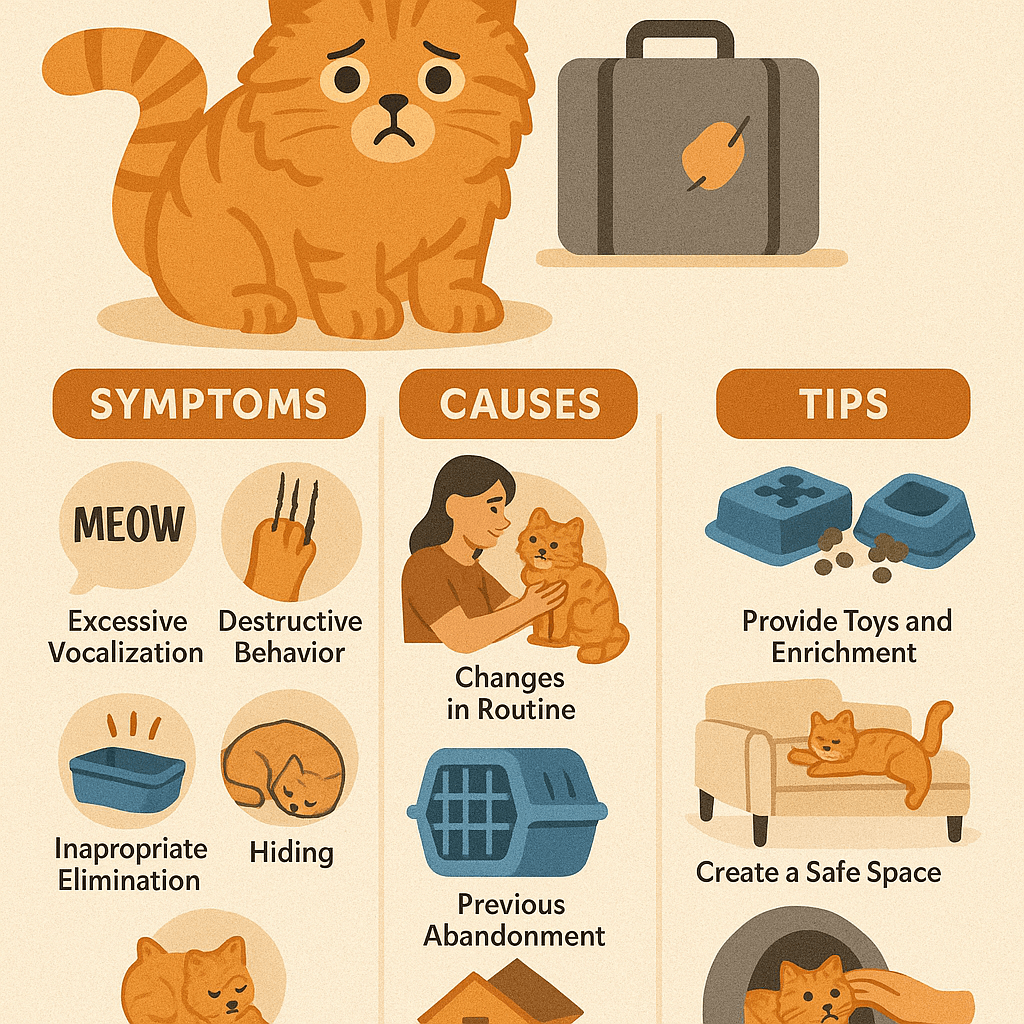
Common Causes of Cat Separation Anxiety
Understanding what triggers separation anxiety in cats can help you address the root cause and create a supportive environment for your pet. Several factors contribute to this condition.
Strong Bond with Their Owner:
Cats that form an intense attachment to their humans may struggle to cope when separated.Lack of Mental Stimulation:
A bored cat with little to do while you’re away is more likely to feel anxious or act out.Past Trauma or Neglect:
Cats adopted from shelters or those with difficult histories may be more prone to separation anxiety.Sudden Changes in Routine:
Moving homes, changing work schedules, or introducing new family members can disrupt a cat’s sense of security.Genetic Predisposition:
Some cats may have a natural inclination toward anxiety due to their breed or temperament.
Identifying the underlying causes allows you to tailor your approach to managing your cat’s anxiety effectively.
Check this guide 👉Why Is My Cat Scared of Everything? Best 7 Expert Tips!
Check this guide 👉How to Introduce a Scared Cat to a Dog: Best 7 Tips!
Check this guide 👉Are Mice Scared of Cats? Best 7 Expert Tips!
Symptoms of Cat Separation Anxiety | Ways to Address the Issue |
|---|---|
Excessive vocalization | Leave calming music or white noise on |
Destructive behavior | Provide interactive toys and puzzles |
Changes in eating habits | Use automatic feeders for consistency |
Inappropriate elimination | Ensure clean litter boxes and safe spaces |
Overgrooming | Offer distractions like scratching posts |
Tips for Managing Cat Separation Anxiety
Helping your cat cope with separation anxiety requires patience and a proactive approach. These tips can make a significant difference in reducing their stress levels.
Create a Comfortable Environment:
Set up a cozy space with familiar scents, soft bedding, and hiding spots where your cat feels safe.Establish a Consistent Routine:
Stick to regular feeding, playtime, and departure schedules to provide predictability for your cat.Use Calming Products:
Consider pheromone diffusers or sprays designed to soothe anxious cats and promote relaxation.Gradual Desensitization:
Practice leaving for short periods and gradually increasing the duration to help your cat adjust to your absence.Provide Mental Stimulation:
Offer puzzle feeders, treat-dispensing toys, or window perches to keep your cat entertained while you’re gone.
With consistent effort, these strategies can help your cat feel more at ease during your time apart.
How to Prevent Separation Anxiety in Cats
Prevention is always better than cure. By taking proactive measures, you can reduce the likelihood of your cat developing separation anxiety in the first place.
Socialize Your Cat Early:
Introduce your cat to different people, environments, and experiences to build their confidence and adaptability.Encourage Independence:
Teach your cat to enjoy solo activities by rewarding them for playing independently or exploring on their own.Avoid Reinforcing Anxious Behavior:
Refrain from giving attention to excessive meowing or clinging, as this can reinforce anxious actions.Provide Plenty of Toys:
Rotate toys regularly to keep your cat engaged and prevent boredom when you’re not home.Maintain a Stable Environment:
Minimize sudden changes in your household routine or living space to avoid unsettling your cat.
By fostering independence and stability, you can help your cat develop resilience against separation anxiety.
Common Misconceptions About Cat Separation Anxiety
There are several myths surrounding cat separation anxiety that can lead to misunderstandings about how to address it. Dispelling these misconceptions helps foster a better understanding of your cat’s needs.
Myth: Cats Don’t Get Lonely:
While cats are generally more independent than dogs, they still crave companionship and can feel lonely when neglected.Myth: Only Dogs Experience Separation Anxiety:
Cats are just as capable of developing separation anxiety, though their symptoms may differ slightly.Myth: Punishment Will Stop Destructive Behavior:
Scolding or punishing your cat for acting out only increases their stress and worsens the problem.Myth: Leaving Food Out Solves Anxiety Issues:
While food can provide temporary comfort, it doesn’t address the underlying emotional distress causing the behavior.Myth: Separation Anxiety Is Untreatable:
With consistent effort and professional guidance if needed, most cases of separation anxiety can be managed successfully.
By challenging these myths, you can adopt a more informed and compassionate approach to supporting your cat.
How Enrichment Activities Help Reduce Anxiety
Providing enrichment activities is one of the most effective ways to combat cat separation anxiety. Engaging your cat’s mind and body helps redirect their focus and reduces feelings of stress.
Interactive Toys:
Toys that mimic prey, such as feather wands or laser pointers, stimulate natural hunting instincts and keep your cat entertained.Food Puzzle Games:
Hide treats inside puzzle toys or scatter them around the house to encourage exploration and mental engagement.Window Perches:
Install perches near windows so your cat can watch birds, squirrels, or passing cars, providing hours of visual stimulation.Rotating Toys Regularly:
Keep your cat interested by swapping out toys every few days to maintain novelty and excitement.DIY Enrichment Projects:
Create simple DIY toys using cardboard boxes or paper bags to spark curiosity without spending much money.
Enrichment activities not only reduce anxiety but also strengthen your bond with your cat through shared fun and discovery.
When to Seek Professional Help
If your cat’s separation anxiety persists despite your best efforts, it may be time to consult a professional. Knowing when and how to seek help ensures your cat receives the support they need.
Behavioral Specialists:
A certified animal behaviorist can assess your cat’s condition and recommend tailored strategies for managing anxiety.Veterinary Check-Ups:
Rule out underlying health issues that could exacerbate anxiety, such as thyroid problems or urinary tract infections.Medication Options:
In severe cases, veterinarians may prescribe anti-anxiety medications or supplements to complement behavioral interventions.Training Classes or Therapy Sessions:
Some trainers offer specialized programs to address separation anxiety through positive reinforcement techniques.Support Groups for Pet Owners:
Connecting with other cat owners facing similar challenges can provide valuable insights and emotional support.
Seeking professional guidance demonstrates your commitment to your cat’s well-being and sets them on the path to recovery.
Frequently Asked Questions About Cat Separation Anxiety
Is separation anxiety common in cats?
While less common than in dogs, separation anxiety can affect cats, especially those with strong bonds to their owners.
Can older cats develop separation anxiety?
Yes, senior cats may become more dependent on their owners, making them more susceptible to anxiety when left alone.
What should I do if my cat pees outside the litter box?
Rule out medical issues first, then address potential stressors like separation anxiety or environmental changes.
Are certain breeds more prone to anxiety?
Some breeds, such as Siamese and Bengals, are known for their high energy and attachment levels, which may increase their risk of anxiety.
How long does it take to resolve separation anxiety?
The timeline varies depending on the severity of the anxiety and the consistency of your efforts, but gradual improvement is typical with proper management.
Building a Stronger Bond Through Understanding
Cat separation anxiety is a real and challenging issue, but it’s also an opportunity to deepen your connection with your feline companion. By recognizing the signs, addressing the root causes, and implementing practical strategies, you can help your cat feel secure and loved—even when you’re not around. Remember, every cat is unique, so patience and empathy are key. With time and dedication, you can transform your home into a haven of comfort and trust for your furry friend, ensuring a happier life for both of you.
Cat Fever Treatment: Best 7 Expert Tips! Discover expert advice on identifying, managing, and treating fever in cats to ensure their quick recovery and well-being.
Understanding Meloxicam for Cats: Best 7 Expert Tips! Learn how to safely administer meloxicam, manage side effects, and ensure your cat's comfort with expert advice on feline pain relief.
Amoxicillin for Cat UTI: Best 7 Expert Tips! Discover safe usage, dosage guidelines, and expert advice on treating feline urinary tract infections effectively with amoxicillin.
Understanding Cat Cancer Treatment: Best 7 Expert Tips! Discover expert advice on managing feline cancer, from early detection to treatment options, ensuring your cat’s health and comfort.

